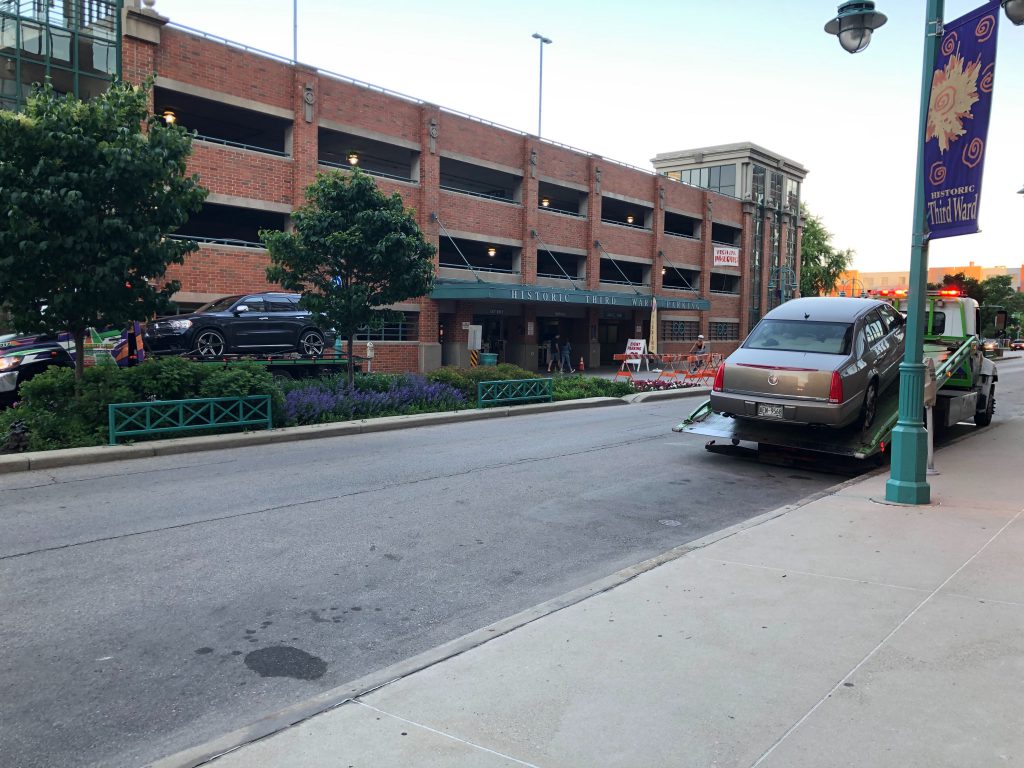Bill to Impound Cars Costly for Cities
Republican bill could cost local governments $50 million per year and charge owners of autos that are stolen.
State and local governments would pay up to $50 million or more a year if a bill introduced by Republican legislators to impound the vehicle driven by anyone cited for driving without a valid driver’s license is passed, according to the State Department of Transportation (DOT).
The DOT estimate assumes costs of $28.9 million for 258.4 new employees to handle the work involved and $21.2 million in towing and vehicle storage costs that law enforcement agencies would not be able to recover.
In addition, the law proposed by State Sen. David Craig (R – Big Bend) and State Rep. Joe Sanfelippo (R-New Berlin) could leave car owners scrambling to retrieve from the impoundment lot their vehicles that were stolen and driven by the unlicensed thieves.
“It appears that the owner of the (stolen) vehicle would be responsible for paying the fees to get their own vehicle back,” DOT said in a fiscal estimate.
The Craig/Sanfelippo bill would, with few exceptions, require that a car operated by a driver without a valid license “be immediately impounded.” The requirement would apply in cases of driving on a suspended license, driving after revocation, and driving without a license.
A person could get a car back at the end of an impound period by paying the fine or forfeiture for the license violation and any impound fees. A vehicle could not be released, however, unless it was properly registered and the person to whom it was registered showed proof of insurance and a valid operator’s license.
The State Patrol, which issued 11,292 citations last year for driving without a valid license, doesn’t have any impound lots and would have to get some, the DOT said.
“It is estimated that it could cost roughly $500,000 to establish each lot when factoring in the costs to obtain real estate, paving, fencing and the necessary security measures,” the agency said. The estimate does not say how many impound lots the state would need.
Add to that the cost of 11,292 tows at $120 each – another $1,355,040.
There’s still more. License cases like those covered by the bill can take weeks or months to resolve. Figure the cars are impounded for an average of 7.5 weeks at a cost of $25 per day – that’s $14,820,750 per year in storage charges.
And what happens if case is dismissed or the driver is acquitted? Under the Craig/Sanfelippo bill, the law enforcement agency eats the cost. So if 10 percent of cases end in dismissal, $1.6 million in storage charges and towing charges would not be collected.
The costs soar even more when other agencies are added into the mix.
“Local law enforcement will likely have very similar costs associated with impounding a vehicle,” DOT said. “Some agencies will have access to municipal impound lots, but many would need to establish impound facilities. It is possible that some commercial impound lots could be utilized but that would likely represent a small portion of spaces used to impound vehicles.”
There were 123,130 convictions for the relevant offenses statewide in 2018, according to DOT. If the bill’s provisions take effect, departments would need almost 237 additional full-time employees at a cost of $26.5 million to handle the new work load; related storage charges would hit $161.6 million, and towing charges would increase $14.8 million, according to the estimate.
If just 10 percent of the cases ended in acquittal or dismissal, law enforcement would not recover $19.6 million in storage and towing charges.
Gretchen Schuldt writes a blog for Wisconsin Justice Initiative, whose mission is “To improve the quality of justice in Wisconsin by educating the public about legal issues and encouraging civic engagement in and debate about the judicial system and its operation.






















